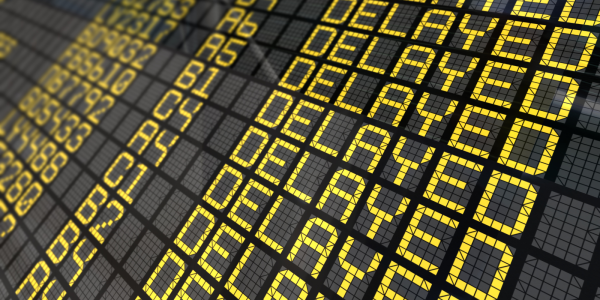Tax campaigners welcome 12-month delay to Making Tax Digital for the self-employed and landlords
The Low Incomes Tax Reform Group (LITRG) welcomes the Government’s announcement today that the roll out of the Making Tax Digital for Income Tax programme1 is delayed from 6 April 2023 until 6 April 2024.

LITRG is hopeful that the delay should allow extra time for all aspects of the new system to be properly tested and for taxpayers to have sufficient time to organise their tax affairs to ensure the introduction of Making Tax Digital for Income Tax goes smoothly for everyone.
Although HMRC and much of the tax profession have been working on the Making Tax Digital (MTD) project since 2015 when it was first announced, many of the people who will be affected by the new rules are still unaware of the substantial changes2 they may need to make to the day-to-day running of their businesses to be compliant with it.
Victoria Todd, Head of LITRG, said:
“For those in scope of this digitisation programme, this is the biggest change to the tax system since self assessment was introduced in the 1990s, and many people do not yet know they will be affected by it. HMRC should use this additional time to educate taxpayers who do not have a professional tax adviser about these significant changes so they can be sufficiently prepared before the 2024/25 tax year.”
As HMRC will not be providing any software, taxpayers will need time to research the software market to choose suitable MTD compliant accounting software and learn how to use it, or they will need to upgrade existing IT. If they do not currently keep digital records at all, they may find that all they can manage is to move to spreadsheet-based record keeping, in which case they will need to use bridging software to file their quarterly updates and learn how to use both.
Victoria Todd said:
“Since 2015, we have urged HMRC to produce their own free MTD compliant software for low-income taxpayers, like they currently do for self assessment. It is disappointing that HMRC are still relying solely on third-party software companies to produce appropriate free software as any free versions are likely to give basic functionality only. This means that those who cannot afford to pay for software are likely to be at a disadvantage and not have access to some of the benefits of MTD that users of paid software are likely to enjoy.
“As there are currently very few MTD compliant software packages available,3 the delay announced today should enable more free products to be developed so that there are more options to choose from when making the switch to digital.
"The delay should also mean that HMRC can test fully the end-to-end MTD journey before the process is mandated. The pilot testing has so far been limited to only a handful of taxpayers and so HMRC need to expand this as quickly as possible so that any glitches can be identified and fixed."
Victoria Todd said:
“The MTD cycle is a two-year process and the delay means that thorough testing of the whole cycle can now be carried out before April 2024, provided the pilots are scaled up at pace in the next few months. We urge HMRC to make this a priority.
“HMRC should also make efforts to publicise the process for obtaining exemption4 from MTD for those who meet the qualifying criteria as early as possible once detailed guidance is available.”
Notes for editors
1. https://www.gov.uk/government/collections/making-tax-digital-for-income-tax
2. MTD for income tax requires a self-employed individual or landlord with income of £10,000 or more to keep records of their business income and expenses digitally and to file quarterly reports to HMRC of their business income and expenses via third party software. An annual statement will also be required containing details of any accounting and tax adjustments for the accounting period to arrive at the taxable profit for the individual or landlord.
3. There are currently 7 MTD compliant accounting packages available, 3 of which provide a free version. There are currently no bridging products on the market. See https://www.gov.uk/guidance/find-software-thats-compatible-with-making-tax-digital-for-income-tax
4. https://www.gov.uk/guidance/apply-for-an-exemption-from-making-tax-digital-for-income-tax
5. Low Incomes Tax Reform Group
The LITRG is an initiative of the Chartered Institute of Taxation (CIOT) to give a voice to the unrepresented. Since 1998 LITRG has been working to improve the policy and processes of the tax, tax credits and associated welfare systems for the benefit of those on low incomes.
The CIOT is the leading professional body in the United Kingdom concerned solely with taxation. The CIOT is an educational charity, promoting education and study of the administration and practice of taxation. One of our key aims is to work for a better, more efficient, tax system for all affected by it – taxpayers, their advisers and the authorities. The CIOT’s work covers all aspects of taxation, including direct and indirect taxes and duties. The CIOT’s 19,000 members have the practising title of ‘Chartered Tax Adviser’ and the designatory letters ‘CTA’, to represent the leading tax qualification.
Contact Hamant Verma, Senior External Relations Officer, 0207 340 2702 [email protected]
